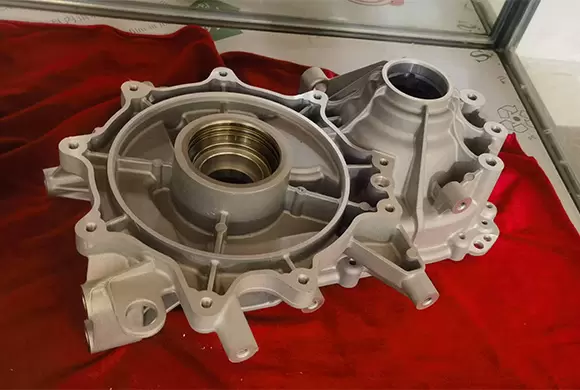Intelligent manufacturing, a fusion of advanced technologies such as artificial intelligence, Internet of Things (IoT), big data analytics, and automation, is revolutionizing the automotive and motorcycle industries. This transformative approach enhances production efficiency, reduces costs, and ensures high-quality machined components.

Advancements in Intelligent Manufacturing
Intelligent manufacturing leverages advanced robotics, computer-aided design (CAD), computer-aided manufacturing (CAM), and simulation software to streamline production processes. These technologies enable precision manufacturing, real-time monitoring, and predictive maintenance, thereby optimizing overall operations.
Automation and Robotics
Automation plays a pivotal role in intelligent manufacturing. Robotic arms, guided by sophisticated algorithms, handle intricate tasks with unparalleled precision. This minimizes human error and enhances productivity, especially in the production of complex mold parts for automobiles and motorcycles.
Data Analytics and IoT
The IoT connects various machines and systems within the manufacturing plant, enabling seamless data exchange. Big data analytics then processes this information to provide insights into production efficiencies, machine performance, and quality control. Predictive analytics can forecast potential failures, allowing for preemptive maintenance and minimizing downtime.
Challenges in Machining Automobile and Motorcycle Components
Various Types of Mold Parts
Automobile and motorcycle machined components encompass a wide array of mold parts, each with unique specifications and requirements. These include injection molds, die-cast molds, blow molds, and forging dies, among others. Each mold part is designed to produce specific components such as body panels, engine parts, and chassis components.
The complexity of these mold parts varies greatly. Some feature intricate designs with undercuts, tight tolerances, and complex geometries. This diversity poses significant challenges in terms of material selection, machining processes, and quality control.
Mold Steel and Material Properties
Mold steel is a critical component in the production of automobile and motorcycle parts. It must withstand high temperatures, pressure, and wear, while maintaining dimensional accuracy and surface finish. Different grades of mold steel are used depending on the application, such as hot-work steel for die-casting and cold-work steel for plastic injection molding.
The shape of mold parts is often complex, incorporating curves, cavities, and cores. This complexity increases the difficulty of CNC machining, requiring highly skilled operators and advanced equipment to achieve the desired precision and quality.
Intelligent Manufacturing Solutions
Precision CNC Machining
CNC machining is the backbone of intelligent manufacturing for automobile and motorcycle components. High-precision CNC machines equipped with multi-axis capabilities can handle complex shapes and tight tolerances. Advanced software simulates machining processes, predicting potential issues and optimizing tool paths for efficient material removal.
Additive Manufacturing (3D Printing)
Additive manufacturing, or 3D printing, offers a revolutionary approach to producing complex mold parts. This technology builds components layer by layer, enabling the creation of intricate geometries that are impossible to achieve with traditional methods. 3D printing also reduces material waste and shortens production cycles.
Advanced Inspection Techniques
Ensuring the quality of machined components is crucial. Intelligent manufacturing employs advanced inspection techniques such as coordinate measuring machines (CMMs), laser scanners, and computed tomography (CT) scanning. These technologies provide detailed measurements and defect detection, ensuring that each component meets stringent specifications.
Predictive Maintenance
Predictive maintenance leverages data analytics to forecast equipment failures before they occur. By monitoring machine performance and identifying patterns, manufacturers can schedule maintenance activities during non-production hours, minimizing downtime and maintaining production continuity.
Conclusion
Intelligent manufacturing is transforming the production of automobile and motorcycle machined components. By addressing the challenges associated with various types of mold parts and complex mold steel geometries, intelligent manufacturing enhances precision, reduces costs, and improves overall efficiency. With advancements in automation, data analytics, and additive manufacturing, the automotive and motorcycle industries are poised for continued growth and innovation.
The integration of intelligent manufacturing technologies not only meets current demands but also paves the way for future advancements, ensuring that automobile and motorcycle components remain at the forefront of quality, performance, and design.







